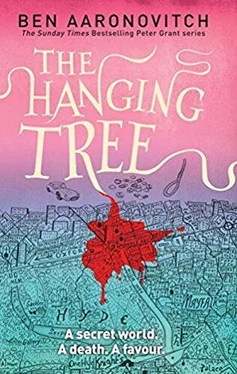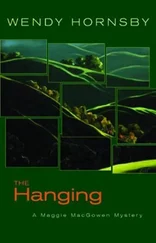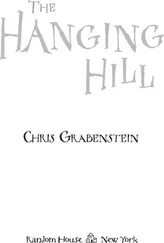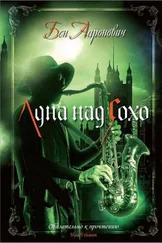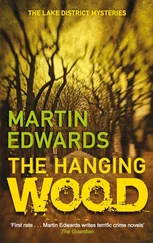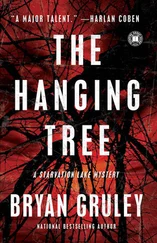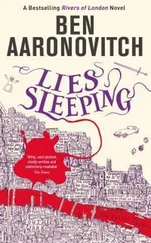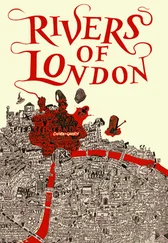We had several lists of names to work with, one of confirmed members in the early 1980s – provided by Lady Ty who’d been getting her double first at the time. And one of suspected members from the late fifties onwards – collated from various reliable sources. Then people who might have been members and/or were close associates of people we knew were members. As you can imagine, the last list was huge and pretty much covered everyone who’d gone to Oxford since the end of the Second World War. Unsurprisingly Martin Chorley and Albert Pryce were on that list. Pryce had gone to Geoffrey Wheatcroft’s old college – Magdalene – while Chorley had been at Oriel. One critical overlap was Chorley’s time with that of Robert Weil, who even now was doing life for the murder of an unidentified woman he’d been caught dumping in the woods near Crawley. We were as sure that he had a connection to the Little Crocodiles as we were that he hadn’t killed the woman, but we couldn’t prove either.
And the Little Crocodiles had spawned Albert Woodville-Gentle, otherwise known as the First Faceless Man, who’d done unspeakable things to people in Soho during the 1960s and then in turn helped another man who kept his face hidden. I’d met the new boy on a couple of occasions and he’d nearly killed me on both. And Nightingale, who I knew for a fact had gone toe to toe with a pair of Tiger tanks, was worried about which of them would come out on top in a straight fight.
Not that we had any intention of letting it come to a straight fight – us being coppers and all.
The connections so far were pretty bloody tenuous. Victim’s posh dad and victim’s best friend’s posh dad both went to a posh university – hold the press. Someone was going to have spend some time drilling into the data to see if there was a deeper connection – guess who that was going to be. But not tonight.
‘Are you sure I’ve got time for that?’ I said to Nightingale.
‘I assured your mother that if you failed to arrive it wouldn’t be my fault,’ he said.
‘You talked to my mum?’
Nightingale grinned – he has a surprisingly mischievous grin.
‘As your . . .’ he paused, he always does at this point. ‘As the one responsible for your apprenticeship, it is expected that I keep your parents informed as to your progress.’
He saw the look on my face.
‘Only in the most general terms,’ he said quickly. ‘For the purpose of reassurance.’
‘Did you talk to my dad as well?’
‘I have spoken to your father, yes,’ said Nightingale.
‘And?’
‘I never knew that Tubby Hayes was also a virtuoso on the vibraphone. In fact, he once played with Charles Mingus in that capacity.’
I was relieved – at least my father was reliably uninterested in my career.
‘Wait,’ I said. ‘What exactly did you talk about with my mum?’
‘She evinced a great interest in the Thames family,’ he said.
I resisted the urge to curl up and hide under Stephanopoulos’ desk.
‘I suppose some emergency overtime is out of the question?’ I asked.
‘And cross your mother?’ said Nightingale. ‘Not likely.’
If you live beside the river, Beverley says, you’re going to get flooded – that’s the cost of doing business, the price you pay for the blessing of the waters. A lot of the London Borough of Barnes sits inside a northern loop of the Thames that stretches from Putney Bridge to where the railway crosses the river. One day, says Beverley, she and her Mama are going to pinch it off at the base and make one big island. I asked her when she thought this was going to happen and she just shrugged.
‘Sooner or later,’ she said.
There’s nothing like having your girlfriend talk in geological time to make you feel insignificant.
The Bull’s Head sits safely above, and a road width back from, an artificial embankment on the south side of the river. Just around the corner from where Holst composed The Planets – I know this because there’s a blue plaque on the house and Bev once made me wait half an hour while she checked on some nearby trolls.
The pub itself is an early Victorian mansion with French windows and wrought iron balconies to give it that sexy New Orleans look. Despite being hemmed in by later buildings it retained its courtyard and coach house round the back, which is where, these days, they keep the jazz. Coleman Hawkins played at the Bull, as did the multi-talented Tubby Hayes, beloved of my dad and Nightingale, until the early 1970’s when he popped his clogs. Other visiting greats included Shorty Rogers, Bud Shank and Ben Webster. And during the jazz revival of the noughties, rising young stars like Jamie Cullum and Simon Spillett made The Bull’s Head the groovy place to be – man. My dad had played there in the past and now it was marking the start of his fourth attempt at jazz stardom – however far that went. It was also the debut of his brand new teeth, paid for by yours truly with the help of a Kickstarter campaign and what was left of my savings.
I’d been there when he’d tested his new embouchure, watched him as he lifted his trumpet to his lips, paused to nervously wet them with his tongue and then blow a single pure note. I’d watched him stop and stare at his trumpet in disbelief and then at my mum who’d pinched the bridge of her nose to hide her tears. Then he smiled at me and for that moment, and just that moment, I forgave him everything – everything – because now I knew what joy looked like and I was part of it.
It wore off fairly quickly in the days after that, but the music stayed and my mum was happy.
I was less happy with the amount of interest my dad’s gigs were getting in the demi-monde, but as Nightingale had pointed out it was my own damned fault.
‘You did rather insist on that open day at Caster-brook,’ he’d said. ‘Your father’s performance there must have caught their imagination.’
That’s the trouble with community policing – strangely, people start expecting you to be part of the community. Fortunately my dad’s brand of soul jazz wasn’t Goth enough for the wilder shores of the demimonde, so I expected the mundane to weird bollocks ratio to be quite high.
It was dark by the time I parked on the embankment and there was a cold wind racing up the Thames bringing threats of rain. The tide was turning and I could feel the Thames pushing upstream and slapping at the exposed shingle. I was early enough that Beverley was still in the main bar.
I spotted her by the window, waving at me. She was wearing a purple knit top with a neck wide enough to slip off her shoulder and had her dreads tied back with a matching purple woollen scarf. An oxblood leather jacket was draped over the back of her chair. She’d managed to score a table despite the crowd and even had a free seat waiting for me. As I slid in beside her a complete stranger put a half of lager down in front of me and walked away.
‘Do you even pay for these?’ I asked.
She leaned close to murmur in my ear. ‘This close to high tide I’m not sure I could make them stop,’ she said and then she kissed me on the lips before introducing me to the others at the table. She’d brought a couple of her white friends from Queen Mary’s where she’d started reading — you don’t study at uni, you read — Environmental Science. She’d sold this to her mum on the basis that while it wasn’t the law or medicine it was a little bit like engineering, if you squinted. And even Lady Ty couldn’t argue with Queen Mary for university snob value. Bev’s friends included Douglas, who would have been a hipster cliché had he been able to manage the beard, and Melanie, who was one of those round perky people who give the impression that it’s only a great effort of will stopping them from bouncing around the room. I’d once asked Beverley whether she told them she was a goddess of a not-so-small river in South London and she said – sure, course she did.
Читать дальше
